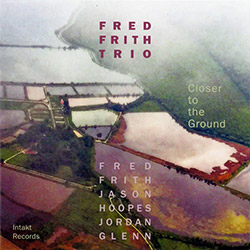
The Oakland, CA-based Fred Frith Trio with bassist Jason Hoopes on double bass and electric, and Jordan Glenn on drums and percussion, extend their sonic excursions in this 2nd album that finds Frith on electric guitar and organ, as they evolve incredible soundscapes or shred through intense and intricate interplay; a rich album of dexterity, mood and power.
Out of Stock
Quantity in Basket: None
Log In to use our Wish List
Shipping Weight: 5.00 units
Sample The Album:
Fred Frith-electric guitar, organ
Jason Hoopes-electric bass, double bass
Jordan Glenn-drums, percussion
Click an artist name above to see in-stock items for that artist.
UPC: 7640120193126
Label: Intakt
Catalog ID: ITK312.2
Squidco Product Code: 26453
Format: CD
Condition: New
Released: 2018
Country: Switzerland
Packaging: Jewel Case
Recorded at Sharkbite Studios, in Oakland, California, on January 13th, 14th and 15th, 2018, by Scott Evans.
"With their second album the Fred Frith Trio with Jason Hoopes and Jordan Glenn continues to explore the dimension of the guitar trio.
Closer to the Ground is all about sound, mood, texture, ideas, and atmosphere. Playful, intimate, and bound together, the Fred Frith Trio reminds us of what listening is all about. With a lifetime of experience across almost every field of musical endeavor, Frith stretches out in the company of two stalwarts of the vibrant Bay Area music scene who each have their own stories to tell. As this is also Frith's touring band, many of these themes were already road tested so even at their most in-the-moment creative, this trio remains dense and tight.
"Three extravagantly creative musicians employed in making music like we've never heard before,"-Raul da Gama
"Meta-musician and guitarist Fred Frith has been juggling disparate concerns for decades, moving from one project to another to tackle specific ideas. He pioneered a distinctly British take on progressive rock in Henry Cow back in the 1970s, applied improvisational impulses to art songs with cellist Tom Cora (and later, harpist Zeena Parkins) in Skeleton Crew, engaged in bracing free improvisation with John Zorn and composed for new music ensembles like ROVA and Ensemble Modern, among others.
He's found simpatico collaborators in drummer Jordan Glenn and bassist Jason Hoopes-like Frith they live in the San Francisco Bay Area, where the guitarist long has taught at Mills College, an academic environment that's helped foster experimental music in the States. Together, they've formed a scrappy improvising trio that deftly enfolds many of the leader's long-term musical concerns into a gritty, unified attack. On the group's second album, its groove-oriented improvisations draw upon the energy of rock music, with each standalone piece flowing into the next. The rhythm section builds muscular, yet tensile, armatures for Frith to extrapolate over, shaping movements that glide and stutter in equal measure. Despite the unstinting propulsion, Glenn and Hoopes constantly are shape-shifting, with the intensity and density of their machinations steadily transforming, usually in lockstep with the leader's colorful sound splatter.
On the album opener, "Bones To Pick With Graveyards," the trio immediately establishes a broad-minded modus operandi, as Frith's pedal-driven mastery splinters his lines into a variegated spray of post-dub pointillism, terse melodic jabs and rhythmically exciting patterns that mutate in some kind of organic process where nothing ever repeats. Simultaneously, Hoopes and Glenn do much more than treat time like putty, as their sometimes slithery, sometimes punishing output frequently serves up tuneful counterpoint to the guitarist. On "In The Grip Of It," the rhythm section embraces a far more visceral drive, stomping out a massive, lumbering lope somewhere between doom and the fractal beats of Autechre.
"Stars Like Trees" veers toward harrowing ambience, as the guitarist unleashes dense, richly atmospheric shards of sound that hover and billow like viscous clouds, as the drummer toggles between silence and spastic, electronically treated rim-shot patterns, and the bassist injects a few low-end jabs between extended washes of atmospheric muck.
While melodic patterns constantly dot these turbulent soundscapes, the trio ultimately is more interested in exploring the nexus of groove and mood, although it consistently refuses to settle into any one spot for more than a few bars; the sense of movement is mirrored by that hearty musical impatience."-Peter Margasak , Downbeat Magazine
Get additional information at Downbeat Magazine
Artist Biographies
• Show Bio for Fred Frith "Though the point of reference for many remains the iconic band Henry Cow, which he co-founded in 1968 and which broke up more than 30 years ago, Fred Frith has never really stood still for an instant. In bands such as Art Bears, Massacre, Skeleton Crew, Keep the Dog, Tense Serenity, the Fred Frith Guitar Quartet, Eye to Ear, and most recently Cosa Brava, he has always held true to his roots in rock and folk music, while exploring influences that range from the literary works of Eduardo Galeano to the art installations of Cornelia Parker. The release of the seminal Guitar Solos in 1974 enabled him to simultaneously carve out a place for himself in the international improvised music scene, not only as an acclaimed solo performer but in the company of artists as diverse as Han Bennink, Chris Cutler, Jean-Pierre Drouet, Evelyn Glennie, Ikue Mori, Louis Sclavis, Stevie Wishart, Wu Fei, Camel Zekri, John Zorn, and scores of others. He has also developed a personal compositional language in works written for Arditti Quartet, Asko Ensemble, Bang on a Can All-Stars, Ensemble Modern, Concerto Köln, and ROVA Sax Quartet, for example. Fred has been active as a composer for dance since the early 1980s, working with choreographers Bebe Miller, François Verret, and especially long-time collaborator and friend Amanda Miller, with whom he has created a compelling body of work over the last twenty years. His film soundtracks (for award-winning films like Thomas Riedelsheimer's Rivers and Tides and Touch the Sound, Peter Mettler's Gambling, Gods, and LSD, and Deborah Kaufman and Alan Snitow's Thirst, to name a few) won him a lifetime achievement award from Prague's "Music on Film, Film on Music" Festival (MOFFOM) in 2007. The following year he received Italy's Demetrio Stratos Prize (previously given to Diamanda Galas and Meredith Monk) for his life's work in experimental music, and in 2010 was awarded an honorary doctorate from the University of Huddersfield in his home county of Yorkshire. Fred currently teaches in the Music Department at Mills College in Oakland, California (renowned for over fifty years as the epicenter of the American experimental tradition), and in the Musik Akademie in Basel, Switzerland." ^ Hide Bio for Fred Frith • Show Bio for Jason Hoopes "Jason Hoopes is a bassist and educator. His work as bassist includes numerous bay area groups including but not limited to...Jack O' The Clock, Fred Frith Trio, OrkestRova, Scott Amendola / Karl Alfonso Defensor Evangelista, Perfect Loss, Eat The Sun, Dominique Leone, The Atomic Bomb Audition, Satya Sena, powerdove, Host Family." ^ Hide Bio for Jason Hoopes • Show Bio for Jordan Glenn "Jordan Glenn is a drummer, percussionist, composer, band leader, conductor, video maker, and general craftsman who lives in Oakland, California. Jordan Glenn spent his formative years in Oregon drawing cartoons, taking dance classes from his aunt, and putting on plays with his sisters. As he got older he began making movies with his friends and studying jazz, classical, and rock music. In 2003 Glenn received a bachelor's degree in Jazz Studies from the University of Oregon. In 2006 he relocated to the Bay Area, received a masters degree from Mills College and since has worked closely with Fred Frith (FF Trio and Gravity Band), William Winant, Zeena Parkins (The Adorables), Roscoe Mitchell, ROVA Sax Quartet, Ben Goldberg, Todd Sickafoose, John Schott, Dominique Leone, Aaron Novik, Darren Johnston, Aram Shelton, Cory Wright, Lisa Mezzacappa, Karl Evangelista, Michael Coleman, Matthew Welch, Rhys Chatham and the bands Jack O' The Clock, Arts & Sciences, Young Nudist, 20 Minute Loop, Beep!, tUnE-yArDs, and the Oakland Active Orchestra. He also leads and conducts the project Mindless Thing, a collaboration with poet/free-jazzer/sage Jim Ryan, as well as the long standing trio Wiener Kids and the ten piece expansion, The Wiener Kids Family Band." ^ Hide Bio for Jordan Glenn
7/9/2025
Have a better biography or biography source? Please Contact Us so that we can update this biography.
7/9/2025
Have a better biography or biography source? Please Contact Us so that we can update this biography.
7/9/2025
Have a better biography or biography source? Please Contact Us so that we can update this biography.
Track Listing:
1. Bones To Pick With Graveyards 5:16
2. Alle Planmassigen Ziele Werden Erreicht 5:06
3. In The Grip Of It 4:56
4. Ruhebereich 6:24
5. Stars Like Trees 5:56
6. A Path Made By Walking 6:50
7. Betting On The World 2:40
8. Love And Other Embers 7:35
9. Up In Smoke 6:19
Intakt
Improvised Music
Free Improvisation
Electro-Acoustic
Electro-Acoustic Improv
Trio Recordings
West Coast/Pacific US Jazz
Frith, Fred
Staff Picks & Recommended Items
Search for other titles on the label:
Intakt.


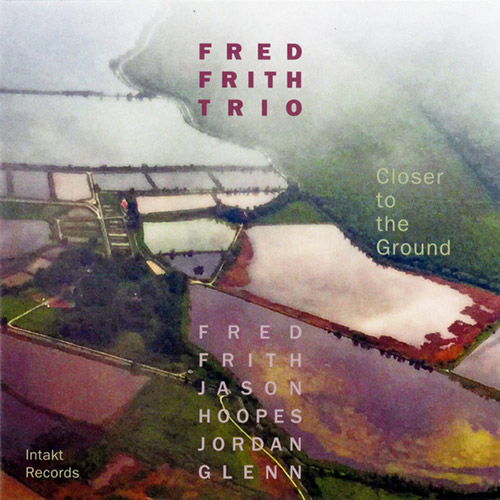
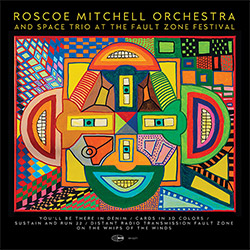
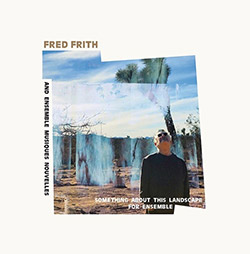
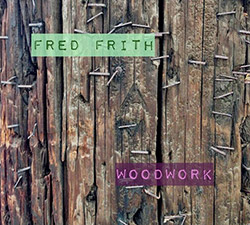

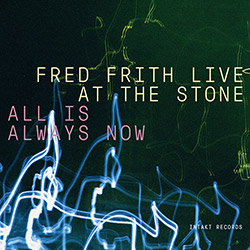

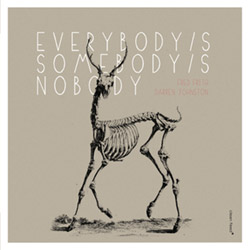
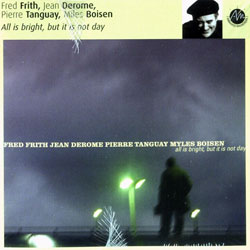
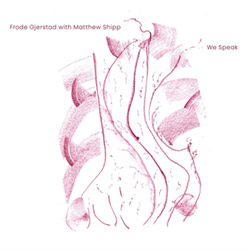


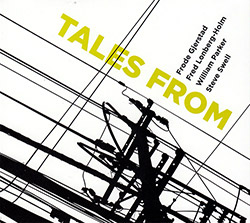
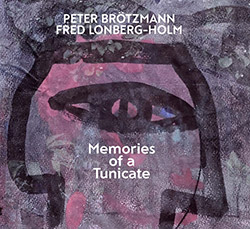

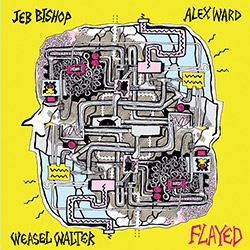
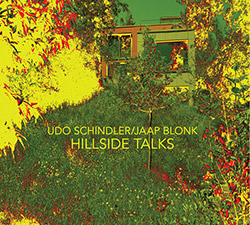
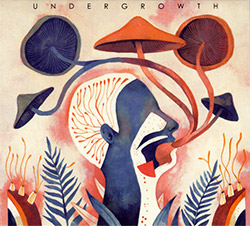

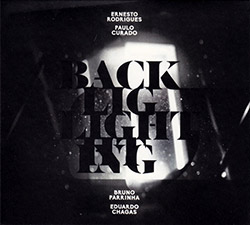



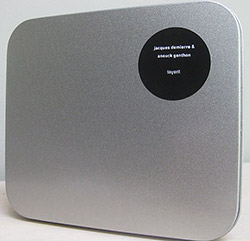

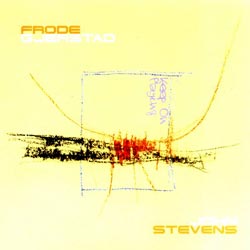
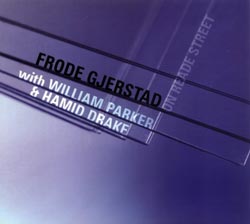




![BlueRing Improvisers: Materia [2 CDs]](https://www.teuthida.com/productImages/misc4/36513.jpg)








![Wheelhouse (Rempis / Adasiewicz / McBride): House And Home [VINYL]](https://www.teuthida.com/productImages/misc4/36462.jpg)
![+DOG+: The Light Of Our Lives [2 CDs]](https://www.teuthida.com/productImages/misc4/36009.jpg)


![Parker, Evan / Jean-Marc Foussat: Insolence [VINYL]](https://www.teuthida.com/productImages/misc4/36398.jpg)










![Deupree, Jerome / Sylvie Courvoisier / Lester St. Louis / Joe Morris: Canyon [2 CDs]](https://www.teuthida.com/productImages/misc4/36404.jpg)



![Eventless Plot | Haarvol: The Subliminal Paths [CASSETTE + DOWNLOAD]](https://www.teuthida.com/productImages/misc4/36232.jpg)










![Eventless Plot | Francesco Covarino: Methexis [CASSETTE + DOWNLOAD]](https://www.teuthida.com/productImages/misc4/36231.jpg)



![Das B (Mazen Kerbaj / Mike Majkowski / Magda Mayas / Tony Buck): Love [VINYL]](https://www.teuthida.com/productImages/misc4/36329.jpg)


![Eternities: Rides Again [CASSETTE]](https://www.teuthida.com/productImages/misc4/36247.jpg)
![Lopez, Francisco: Untitled (2021-2022) [2 CDs]](https://www.teuthida.com/productImages/misc4/36438.jpg)






![Money : Money 2 [2 CDs]](https://www.teuthida.com/productImages/misc4/35894.jpg)




![Klinga, Erik: Elusive Shimmer [VINYL]](https://www.teuthida.com/productImages/misc4/36258.jpg)
![CHANGES TO blind (Phil Zampino): Volume 9 - I Wave on a Fine Vile Mist [CD + DOWNLOAD]](https://www.teuthida.com/productImages/misc4/36061.jpg)

![Wallmart / Rubbish: Asset Protection [split CD]](https://www.teuthida.com/productImages/misc4/35900.jpg)


![+Dog+: The Family Music Book Vol. 5 [2 CDs]](https://www.teuthida.com/productImages/misc4/35897.jpg)
![Kuvveti, Deli : Kuslar Soyledi [CASSETTE w/ DOWNLOAD]](https://www.teuthida.com/productImages/misc4/36107.jpg)

![Brown, Dan / Dan Reynolds: Live At The Grange Hall [unauthorized][CASSETTE]](https://www.teuthida.com/productImages/misc4/36245.jpg)








![Palestine, Charlemagne / Seppe Gebruers: Beyondddddd The Notessssss [VINYL]](https://www.teuthida.com/productImages/misc4/36206.jpg)
![Palestine, Charlemagne / Seppe Gebruers: Beyondddddd The Notessssss [NEON GREEN VINYL]](https://www.teuthida.com/productImages/misc4/36207.jpg)

![Laubrock, Ingrid: Purposing The Air [2 CDs]](https://www.teuthida.com/productImages/misc4/35639.jpg)

![Yoko, Ono / The Great Learning Orchestra: Selected Recordings From Grapefruit [2 CDs]](https://www.teuthida.com/productImages/misc4/35841.jpg)









![Zorn, John / JACK Quartet: The Complete String Quartets [2 CDs]](https://www.teuthida.com/productImages/misc4/35609.jpg)

![Lonsdale, Eden: Dawnings [2 CDs]](https://www.teuthida.com/productImages/misc4/35480.jpg)



![Sorry For Laughing (G. Whitlow / M. Bates / Dave-Id / E. Ka-Spel): Rain Flowers [2 CDS]](https://www.teuthida.com/productImages/misc4/35985.jpg)

![Rolando, Tommaso / Andy Moor : Biscotti [CASSETTE w/ DOWNLOADS]](https://www.teuthida.com/productImages/misc4/36106.jpg)


![Electric Bird Noise / Derek Roddy: 8-10-22 [CD EP]](https://www.teuthida.com/productImages/misc4/35970.jpg)








![Elephant9 : Mythical River [VINYL]](https://www.teuthida.com/productImages/misc4/34624.jpg)



![Elephant9 with Terje Rypdal: Catching Fire [VINYL 2 LPs]](https://www.teuthida.com/productImages/misc4/35355.jpg)
![Deerlady (Obomsawin, Mali / Magdalena Abrego): Greatest Hits [VINYL]](https://www.teuthida.com/productImages/misc4/34876.jpg)







![Surplus 1980: Illusion of Consistency [CD]](https://www.teuthida.com/productImages/misc4/35069.jpg)
![Staiano, Moe: Away Towards the Light [VINYL + DOWNLOAD]](https://www.teuthida.com/productImages/misc4/35037.jpg)
![Coley, Byron: Dating Tips for Touring Bands [VINYL]](https://www.teuthida.com/productImages/misc4/17906.jpg)

![Lost Kisses: My Life is Sad & Funny [DVD]](https://www.teuthida.com/productImages/misc4/lostKissesDVD.jpg)